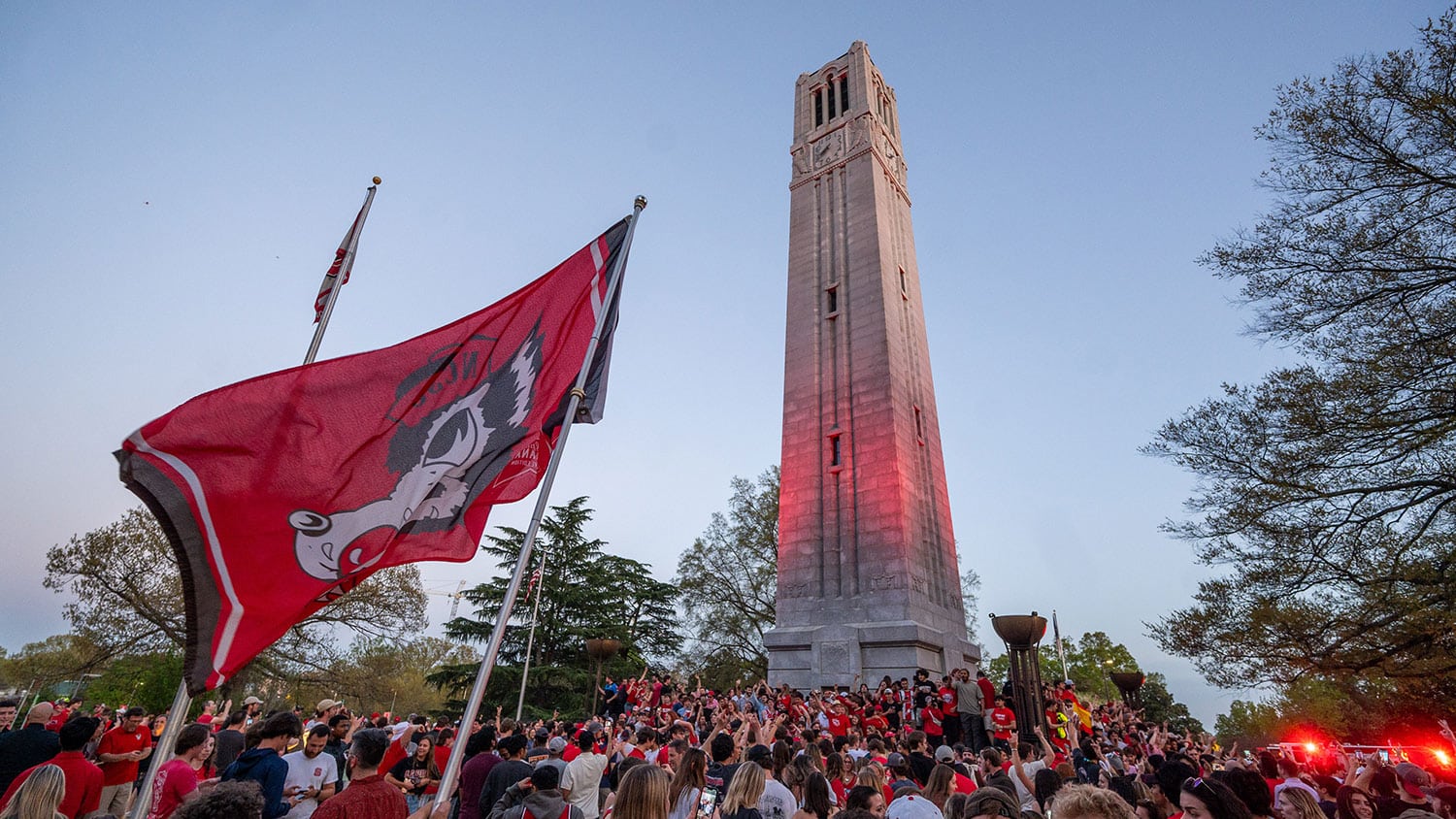Gen. H. Hugh Shelton is one of NC State’s most famous and accomplished alumni. The Tarboro native served two terms as chairman of the Joint Chiefs of Staff and is the recipient of the Bronze Star, Purple Heart, Congressional Gold Medal and a knighthood from Queen Elizabeth II, among many other honors and awards. After a military career spanning almost 40 years, Shelton concluded that while there were plenty of leadership development opportunities to be had, most of them didn’t focus enough on the values that inform leadership. When he returned to civilian life, he founded a center at NC State — the Shelton Leadership Center — to fill that gap by promoting the development of values-based leaders.
One of the center’s signature events is its annual Shelton Leadership Forum, a one-day professional development conference for executives, managers, administrators and emerging leaders. The 13th annual forum, titled “Leadership Decisions as Game Changers,” will be held at the McKimmon Center on Friday, Nov. 21. The forum’s keynote speakers are Elaine Chao, former U.S. secretary of labor, and Dean Kamen, inventor of the Segway.
“Gen. Shelton founded the center because he wanted to give back to his alma mater,” says Debbie Acker, the center’s assistant director. “That’s just how he was brought up. So he decided the best way for him to do that was to promote values-based leadership.”
The center aims to foster leadership based on five cardinal values that Shelton found to be crucial in his military career: honesty, integrity, diversity, compassion and social responsibility.
“He wants the center’s work to be more practical in its application,” Acker says, “not just talking heads telling you what leadership is.”
Developing Young Leaders
One of the center’s main areas of focus is developing leadership among youth, primarily through the Shelton Challenge, a one-week summer experience that helps high school students develop leadership skills. Program mentors work with participants to explore the components of leadership, such as motivating others, leadership styles and public speaking. Participants then practice their leadership skills and receive feedback from mentors and peers. They also complete a service project and participate in team-building exercises on a ropes course. One of the program’s main goals is for participants to leave with a plan of action to continue their leadership development.

The center also works to integrate values-based leadership throughout NC State. To do that, the center started its own undergraduate course — SLC 250, Critical and Creative Decision-Making Models.
“There’s been a push throughout higher education to make sure that students are graduating with the ability to critically make decisions,” says Acker. “The Shelton Challenge is very experiential, very focused on critical thinking, so we incorporated those principles into the course. We also have faculty from different colleges come in and speak about a decision-making model they use in their own discipline. Then we help students learn how to make critical decisions about issues in the world today, using the interdisciplinary methods we teach them.”
Acker teaches SLC 250 and gives lectures on leadership for Living and Learning Villages and other groups on campus. Chris Hitch, director of the center, teaches two courses on leadership in the MBA program in the Poole College of Management. The Shelton Center also has named a distinguished professorship at NC State: the Gen. H. Hugh Shelton Distinguished Professor of Leadership. The current Shelton Distinguished Professor is Brad Kirkman, head of the Department of Management, Innovation and Entrepreneurship.
In addition, the center teaches an Advanced Protocol course that helps students learn rules of etiquette that will help them navigate unfamiliar professional and social situations, such as receptions with important leaders or a five-course haute cuisine meal with major donors. A protocol expert from the Joint Special Operations Command of the U.S. armed services comes to campus to give students the same experiential training provided to general officers in all branches of the military.
Leadership Fundamentals
Hitch relates the story of meeting a young Kenyan woman who had excelled scholastically in her home country, despite coming from a village with no running water and no electricity at night. At a mathematics conference in Kenya she met an NC State professor who encouraged her to apply to graduate school. She was accepted and began studying in the College of Sciences. She took the Shelton Center’s protocol course to learn how to conduct herself while applying for grants, fellowships and other opportunities available to graduate students in the sciences.
“I didn’t think I would be able to do this, but you gave me hope,” the young scholar told Hitch.
Another area of focus for the center is providing leadership-oriented scholarships to deserving students. The Shelton National Scholarship, a four-year scholarship, and the Shelton Caldwell Scholarship, a three-year scholarship, are each awarded to one student each year. The center also funds affiliated scholarships of lesser amounts at a number of colleges around campus.
All of the Shelton Center scholarships include leadership-development components, whether through service opportunities — such as Alternative Service Break or Service NC State, both coordinated by NC State’s Center for Student Leadership, Ethics and Public Service — or through stipends to be used for high-impact experiences such as study abroad, undergraduate research or internships.
The Shelton Center also provides customized executive education to private- and public-sector organizations. The center’s executive education clients include the U.S. Department of Defense, Biogen Idec and Cisco. The curriculum focuses on management development and leadership development for high-potential individual contributors, early-career professionals moving into first-time management positions and mid- to senior-level leaders.
“All our executive programs are founded on the same values-based leadership cornerstones that drive everything we do,” Hitch says.



